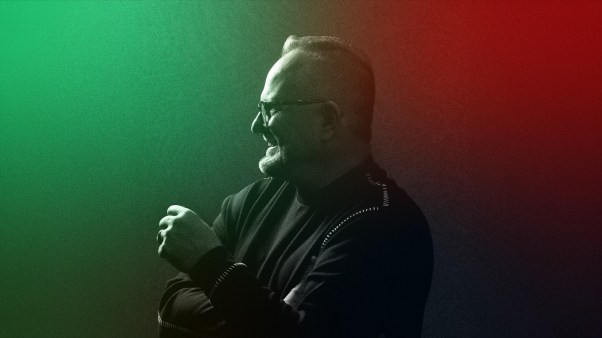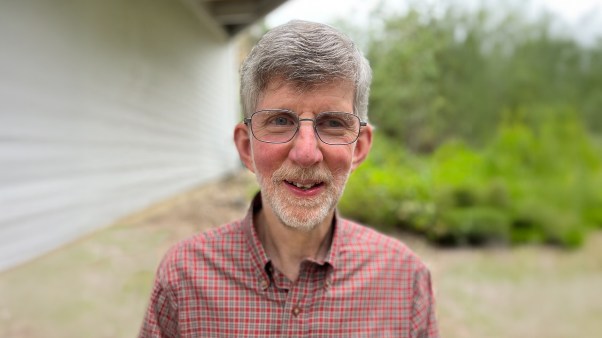In a grass hut in 1892 in British Central Africa, a 10-year-old British girl named Emily Booth lay sick and without her family. Her mother had recently died and her father, a missionary named Joseph Booth, was undeterred by the death of his wife and was away preaching. So, Emily was left alone with their new house servant, John Chilembwe. Though the servant knew little English, he had already proven himself superior to previous employees simply by virtue of not stealing from the Booths. Yet his care for little Emily would demonstrate his tender-heartedness and compassion, far outstripping his language skills. As Emily later recounted:
When my malaria recurred, and it seemed impossible for Father to go about his business of finding suitable land for the Mission, John proved himself invaluable. Father was able to leave me in his care. He was kind and infinitely patient, making beef-tea and broths for me, trying to tempt my appetite and give me strength. He could not more gently have tried to comfort me, and help me to be unafraid, if he had been my big brother.
The days were very long with Father away. I was weak and sometimes half delirious. Late one afternoon—it has, somehow, stayed clearly in my memory—I woke up and found that Father had not returned. Unreasoning panic possessed me. I got out of bed and went out-of-doors in my nightgown. I started to run down the path, calling for Father. My strength gave out and I fell in a heap. John, who had tried to restrain, came and gently picked me up. He carried me in his arms and laid me down on my cot. ‘You no cry, Miss Dot,’ he said, ‘your father come back soon.’ I must have slipped off to sleep for a brief time, and when I woke up again in restless longing for Father, John was sitting on a packing-box beside my camp cot. His soothing voice said, ‘I no leave you, Miss Dot. I stay till your father come.’ I was comforted and at peace. Gradually, I came out of my malaria. Gradually, with John’s help, Father and I were able to feel the Mandala hut was something of a home.
Twenty-three years later, Chilembwe would be dead after leading an uprising against the colonial authorities and Booth would be exiled from what is now Malawi. Yet today, Chilembwe’s face is emblazoned on Malawi’s currency and a holiday is celebrated in his honor every January. How did this gentle man become a revolutionary firebrand? How did his service to Booth, a pacifist, set him on a course to lead an armed uprising?
Colonial Powers
As various European powers tried to secure colonies for themselves in what was known as “the Scramble for Africa” in the late 19th century, numerous African peoples long used to independent existence and a degree of self-determination found themselves under the rule of faraway kings and queens. In Central and Southern Africa, tribal leaders facing slave raids from Arabs and tribes in Portuguese territories to the north and east were encouraged by missionaries and the missionary-instituted African Lakes Company to petition the English Queen Victoria to create a protectorate. First known as British Central Africa in 1891 when the protectorate was established, it was officially named Nyasaland in 1907.
Mission work and colonial enterprise weren’t always closely linked (as in East Africa, where missionaries preceded colonial authorities by as much as a century). But by the late 1800s, the two were inseparable. David Livingstone had set out on his journeys through Central Africa decades earlier with a vision for combating the slave trade and bringing the gospel to thousands of Africans via “Christianity, commerce, and civilization” as a means of indigenous development, but now mission work, business, and education took place firmly under the aegis of the British Empire in many places.
Missionaries at the time, despite their advocacy for British protection, were also expressing doubts about whether Africans would get a fair deal under the Protectorate (particularly in regards to land). Their fears were confirmed when many white settlers were granted large tracts of land and then, under a system called thangata, extracted rent in the form of labor from the people already living on the land that the protectorate had granted to the settlers. These abuses led to a great deal of resentment among the indigenous peoples of the land.
Servant, Preacher, and Student
Very little is known of John Chilembwe’s early life. He was reportedly educated at a Church of Scotland mission school in Blantyre (itself named after David Livingstone’s birthplace) and likely grew up in the tumultuous Chiradzulu district where both intertribal warfare and European land-grabbing were common. In 1892 he'd been hired as a house servant for Joseph Booth, a Baptist missionary who had left the church of Scotland because of the bigotry he’d experienced. Chilembwe quickly became Booth’s interpreter and began his own career as a pastor and evangelist over the next five years.
Booth was different from many other missionaries; he came to Africa without the support of a sending organization and held very strong views about pacifism and African independence. He ended up going to America in 1895 to raise support and made connections there with a number of African American churches, who he thought would be crucial in helping Africans gain self-sufficiency and self-rule. These connections did not bring in as much financial support as he hoped, but the relationships he formed would be crucial later. In 1897, he published a book entitled Africa for the African, criticizing “the ungenerous and often criminal treatment” Africans had received at the hands of their European colonizers. Booth had grand visions for partnership between African Americans (who at that time were experiencing the very worst of Jim Crow) and Africans to spread the gospel in Africa and flourish unhindered by white domination.
Chilembwe, it seems, was a part of that vision. On a return visit in 1897, Booth took Chilembwe with him, visiting black churches that he had met on his previous tour. The two were frequently harassed by white mobs for walking or sitting together; here Chilembwe saw firsthand American injustices while he was reading American history (including the famous story of John Brown and the violent insurrection he led). Chilembwe found much greater success in meeting with black churches and raising support from them than Booth ever had. Booth wanted to return to Africa, but Chilembwe’s growing relationship with the black churches in America made him want to stay. Both men decided that it was time for each to go his own way. Booth returned to missionary work while Chilembwe remained in America to study at Virginia Theological Seminary and College, an African American institution.
Leader and Revolutionary
In 1900, Chilembwe returned to the Protectorate with funds raised from the black churches in the US that he had become involved with during his time in America; he was also joined by several short-term black missionaries. Inspired by Booth’s work (and, arguably, the ideas of Booker T. Washington that were being actively discussed in America during the time that he studied there), he founded the Providence Industrial Mission not far from the city of Blantyre so that people could be educated, hear the gospel, and learn trades. He built an impressive cathedral-like church and a school there and became a pastor to many people working and living within his mission and without.
His concern for his people also led him toward social and political activism—a tense field at a time when apocalyptically minded preachers were inspiring rebellions in neighboring regions. In 1909, Chilembwe founded the Natives Industrial Union to advocate for the rights of his fellow Africans in commerce and law. However, droughts and the mission’s growth led to both funding and administrative difficulties at the same time that Chilembwe’s health began to decline. He felt forced to neglect his preaching duties to go on ivory hunts to keep his mission afloat financially.
It was at this time that conflict flared between Chilembwe’s followers who worked on nearby white estates and the owners of these estates, who required rent from their tenants in the form of labor. One of the most notorious managers was named William Jervis Livingstone (he claimed to be related to the famous explorer David Livingstone, but historians doubt this is true), who was known for beating his workers. Livingstone was also responsible for burning several of the tenants’ churches, which the plantation owners viewed as illegal constructions. Simply speaking up in defense of his disciples made Chilembwe gain a reputation as a troublemaker in his calls for justice—which seemed to fall on deaf ears.
It seems that the final straw for Chilembwe came in 1914 when the British government sent Nyasaland natives to fight Africans from the German East Africa colony to the north in a conflict that was part of World War I. Chilembwe protested this action vigorously with a letter dated to November 1914 sent to the Nyasaland Times, articulating his frustrations with the colonial government conscripting Africans for war on behalf of colonizers who seemed to care nothing about the concerns of the people they expected to fight and die for them:
We understand that we have been invited to shed our innocent blood in this world’s war which is now in progress throughout the wide world. On the commencement of the war we understood it was said indirectly that Africa had nothing to do with the civilised war. But now we find that the poor African has already been plunged into the great war. […]
We ask the Honourable government of our country which is known as Nyasaland, Will there be any good prospects for the natives after the end of the war? Shall we be recognised as anybody in the best interests of civilisation and Christianity after the great struggle is ended? Because we are imposed upon more than any other nationality under the sun. Any true gentleman who will read this without the eye of prejudice will agree and recognise the fact that the natives have been loyal since the commencement of this Government, and that in all departments of Nyasaland their welfare has been incomplete without us. And no time have we been ever known to betray any trust, national or otherwise, confided to us. Everybody knows that the natives have been loyal to all Nyasaland interests and Nyasaland institutions. […] But in time of peace the Government failed to help the underdog. In time of peace everything for Europeans only. And instead of honour we suffer humiliation with names contemptible.
Despite this impassioned plea, wartime censorship prevented the publication of Chilembwe's letter and further placed Chilembwe under suspicion by the British ruling authorities.
After years of calling for justice and fair treatment, Chilembwe determined that words were no longer enough, more decisive action was needed. He organized a militia over the months of December and early January and the group finally struck on January 23, 1915, and succeeded in killing W. J. Livingstone and two other white men. Chilembwe gave strict orders that women and children not be harmed, which were strictly obeyed by his followers. A simultaneous raid on a nearby arms cache (inspired by John Brown) failed to succeed. Some reports claim that Chilembwe preached a sermon the following Sunday standing beside Livingstone’s severed head on the altar. An eyewitness account, however, maintained that Chilembwe preached a sermon of resignation and sent the captured women and children back to their home.
While Chilembwe's own raid had been successful, the uprisings he’d hoped would occur simultaneously in other nearby provinces largely did not materialize. Fearing retribution, Chilembwe fled toward Mozambique but was caught and killed on February 3 by fellow Africans, who were employed by the protectorate. While the colonial government blamed Livingstone for the revolt, it refused to restrict his estates and cracked down hard on the local population in retaliation for the militia raid, closing many village schools in the area, kicking out any missionaries rumored to be sympathetic to the cause, and even burning down Chilembwe’s cathedral.
Independent African
Growing up at a time when European powers were mostly interested in missions as a tool for colonial domination, Chilembwe was an independent African preacher and a shepherd who built a ministry committed to meeting Africans’ spiritual and physical needs. Decades before most African nations became independent, he called for a self-governing “Africa for Africans.” He was both ahead of his times and committed to the original vision of missionary pioneers like David Livingstone, insistent on the idea that his countrymen could be educated and equipped to preach the gospel and participate in the global economy.
Chilembwe’s life demonstrates that he saw an inseparable connection between advocacy for justice and pastoral ministry. Chilembwe refused to stay in his pulpit and simply preach while churches were being burned and his fellow Africans were being sent to die in a European war. Unlike his mentor, Joseph Booth, Chilembwe determined that pacifism was not sufficient to address the injustices he saw around him or to care for his flock. In his mind, British colonial oppression was actively preventing his people from attending African-led churches and living out the gospel, and he was willing to actively revolt to ensure they could. Unfortunately, his rebellion was ill-timed and poorly planned. His tragic end is a warning to those who might consider that their cause is just enough to invoke force: Simply because we feel like we have exhausted all diplomatic means of resistance does not mean that violence is the best course of action, nor that it is going to succeed.
At the same time, ignoring nonviolent protests may push those protesting into feeling like violence is the only solution when justice delayed becomes justice denied. If, as Christians, we don’t want violence to erupt, we have to lend an ear to those around us and push to ensure that our brothers and sisters’ concerns are heard. Chilembwe’s complex legacy is a testament to the need to listen to the concerns of the oppressed and ensure that everyone is free to hear and live out the gospel in their lives.
Matthew Loftus is a family doctor who teaches and practices in Baltimore and East Africa. You can learn more about his work and writing at www. MatthewAndMaggie.org.








